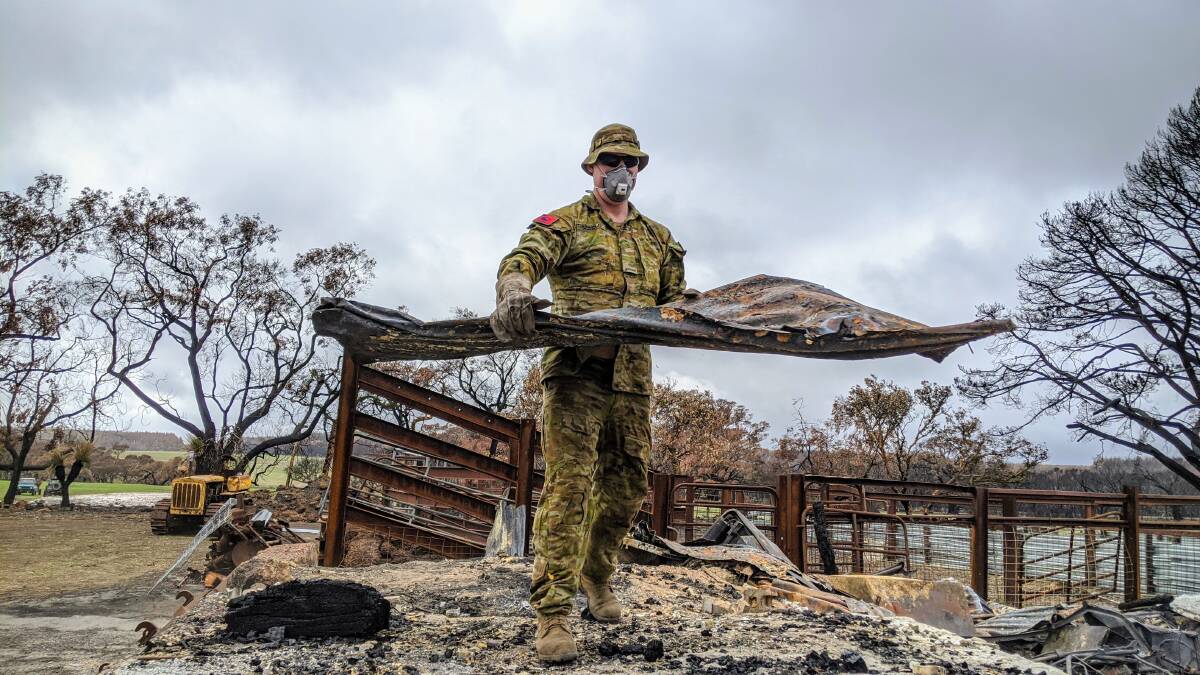I first deployed to fight fires as a member of the Australian Defence Force in the summer of 1993. During that summer, I served in both the Blue Mountains and southern Sydney to combat bushfires that first responders couldn't manage on their own.
It was hard work, but our troops made a real difference. ADF troops are highly trained, operate well under extreme pressure, and dedicated to doing everything they can to defend Australians.
A few years later, I assumed a more senior role in the ADF and relocated to Canberra: taking on responsibility for the Defence Force Aid to the Civil Community, a project now known as DACC. I was operating under the common assumption that the kind of assistance the ADF offered back in 1993 would be rarely required.
I wish that assumption had been right. But climate change, driven by the burning of coal, oil, and gas, has shown this assumption was ill founded.
Fast forward to 2019 by which time I had become a member of a group of former fire and emergency commissioners across the country deeply concerned about the fire season ahead. The then Morrison government was not taking the growing climate change and national bushfire threat seriously. I was concerned that this approach was endangering both communities and emergency services personnel.
At the time, we advised that a lack of government action to strengthen emergency services capabilities meant that they would likely be overwhelmed, and that the ADF would then be required to step in at short notice when disaster struck. This advice was ignored. Worse, we were ridiculed by federal ministers for being alarmist.
The consequences of that blatant disregard for our changing climate hit me with full force. As New Year's Eve 2019 approached, I was at home in the NSW South Coast village of Lake Conjola. The Currowan fire was burning to the south of where we were. It blazed hotter and harder than anyone anticipated, and we were severely impacted.
Faced with the immense scale and severity of the fires, emergency services struggled to cope, prompting a call for assistance from the ADF.
I had come full circle. I was the recipient of ADF support, as a massive fire front killed three members of my community, destroyed 120 homes and countless other infrastructure and forever changed the natural environment surrounding Lake Conjola.

I was as grateful for the ADF's support as the rest of my community. But in the years that followed, as I watched ADF troops being deployed to fight other fires and then devastating floods, I became concerned about the changing nature of their role.
In short, the ADF has been stepping in to support first responders and communities. It is not their primary function to respond to extreme weather events. Australia cannot afford for the ADF to be stretched thin amidst growing global tensions.
The Defence Strategic Review, which was commissioned by our current government this year to reset the posture of the ADF, responded to the massive pressures on the ADF by clearly stating that the Commonwealth, states and territories must step up and increase their capabilities to respond to our turbocharged climate and the extreme weather events it worsens.
Additional firefighting aircraft are urgently needed, as are seasonal firefighters, and flood and storm response personnel. Until the various jurisdictions in Australia build these capabilities, the ADF will keep being called upon time and again to assist overwhelmed agencies and communities.
The Australian federal government has begun to invest additional funding into disaster preparedness this year, but that amount is still dwarfed by the amount through which we are continuing to add fuel to the fire by subsidising fossil fuels.
There is $11 billion in tax breaks and other subsidies given each year to the industry causing the climate crisis - the coal, oil and gas industry. These funds would be much better spent strengthening the resilience of communities, helping them to prepare for extreme weather events.
READ MORE DEFENCE REVIEW:
- Ukraine experience exposes old mindset in new conflict
- The government's choices as it considers a new surface ship plan
- Tensions must be managed, not ignored. Time to bring funding forward
- No time to drop guard, but full-on cyber war has been a non-event
- There will be some pain, but Defence must change, Marles says
- Hastie challenges Marles to drive army recruitment Bob Hawke-style
The science is clear: climate change is worsening extreme weather events. The more we burn coal, oil, and gas the more fuel we are adding to this fire. We must rapidly switch to clean sources of power like solar and wind, so we can phase out fossil fuels if we are to give future generations a fighting chance at a safe future.
Our leaders must commit to quitting fossil fuels, and prioritising the preparedness of communities, so the ADF can focus on achieving its core mission of defending Australia from external threats. Doing so would also mean the ADF would be better able to provide assistance to our Pacific neighbours when required, as they deal with rising sea levels and more powerful storms driven by climate change.
Climate change is a security threat. It is occupying the attention of our most highly trained troops away. We need to get our own house in order, and quickly, so that the ADF can do what it does best: defend Australia.
- Major-General (Ret) Peter Dunn is an emergency leader for climate action and former commissioner for the ACT's Emergency Services Authority.

